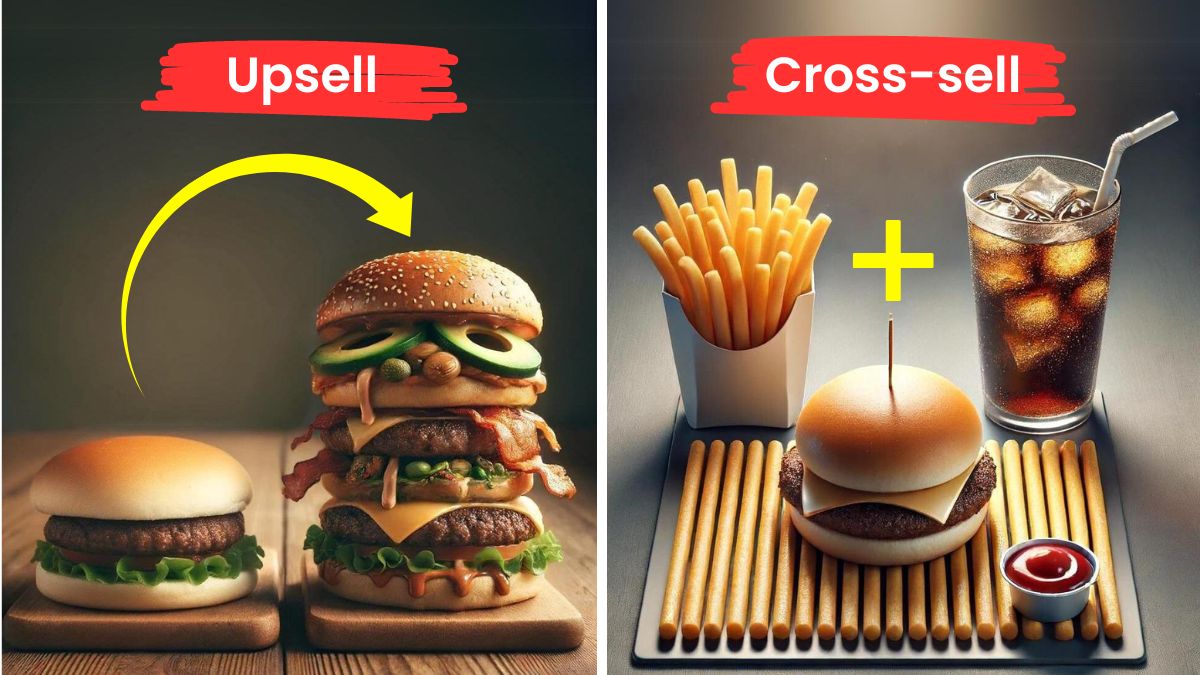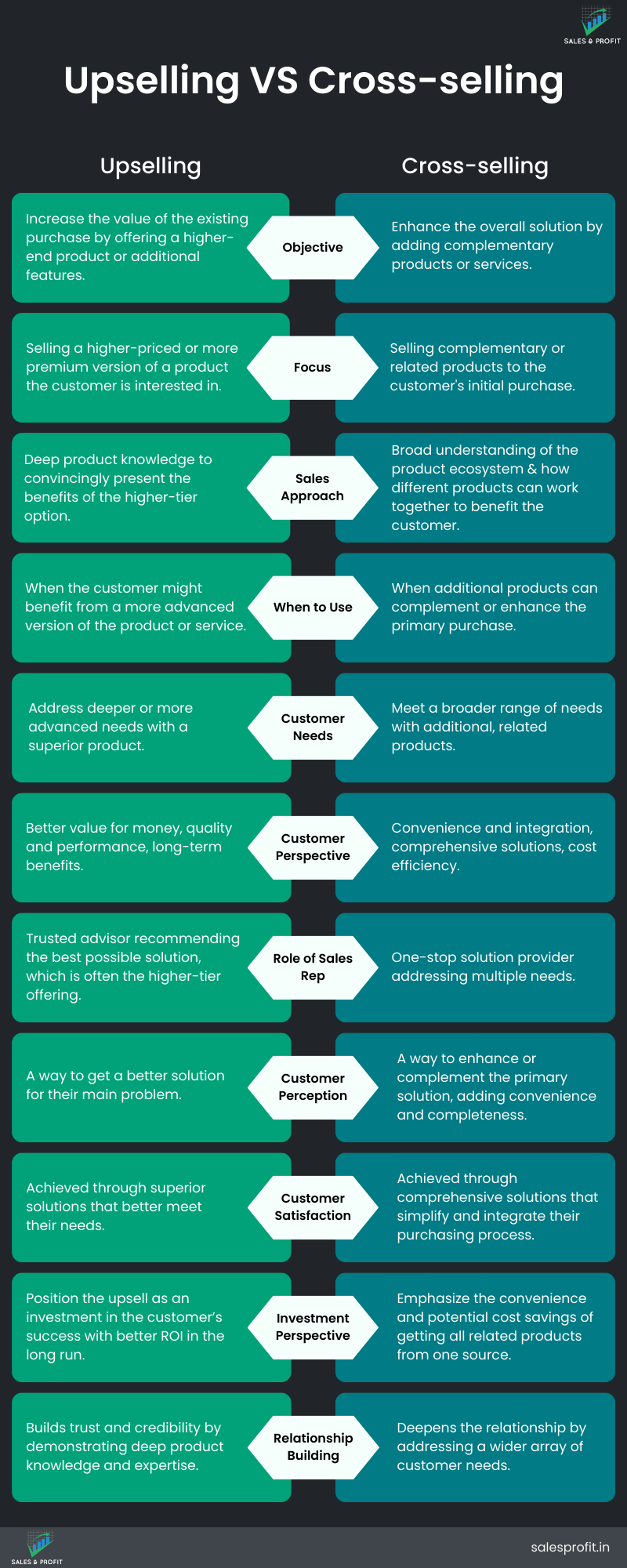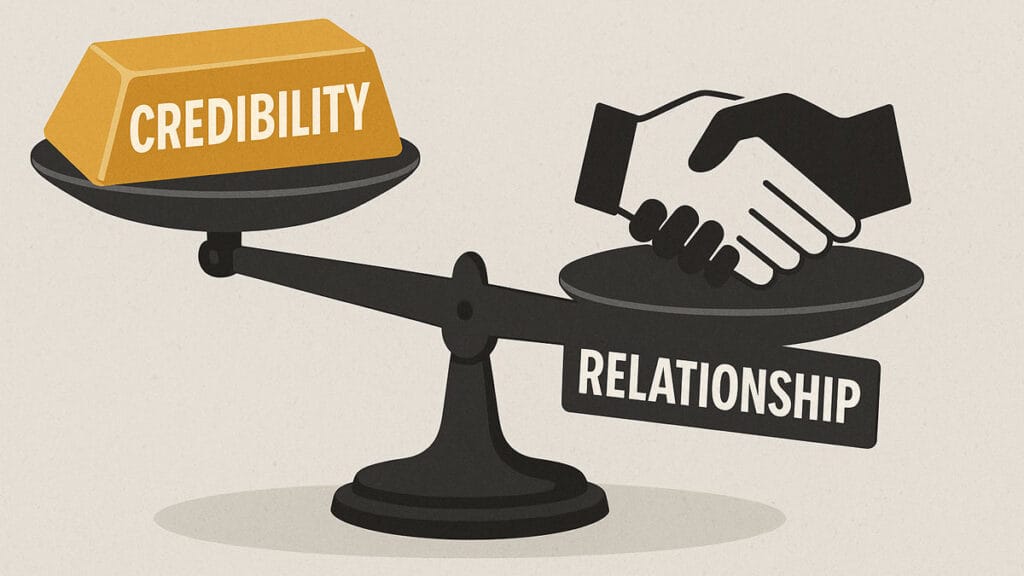Table of Contents
What is Upselling?
Upselling is a sales technique where a seller encourages the customer to purchase a more expensive, upgraded, or premium version of the chosen product or service.
It focuses on increasing the value of the sale by enhancing the customer’s initial purchase with additional features, extended warranties, or superior models.
This approach aims to provide more value to the customer while boosting the seller’s revenue.
What is Cross-selling
Cross-selling is a sales technique where a seller encourages the customer to purchase additional, complementary products or services along with the primary purchase.
The goal of cross-selling is to increase the overall value of the sale by introducing customers to related items that enhance their initial purchase, thereby improving their overall experience.
Test Your Knowledge about Upselling & Cross-selling
Key Differences Between Upselling and Cross-selling
The main difference between upselling and cross-selling is – Upselling aims to increase the value of the sale by adding upgraded products, while cross-selling aims to enhance the sale by adding related products.
Examples of Upselling in Different Industries
1. Retail
Example – When a customer is purchasing a basic home appliance, such as a washing machine, the salesperson recommends a model with additional features like smart technology or energy efficiency.
2. Technology and Electronics
Example – A customer looking at a basic laptop is offered an upgraded model with better processing power, more storage, or enhanced graphics capabilities.
3. Automotive
Example – When a customer is buying a standard car model, the dealership suggests a higher trim level that includes advanced safety features, a premium sound system, or leather seats.
4. Travel and Hospitality
Example – A travel agent recommends upgrading from a standard hotel room to a suite with a sea view or from economy class to business class on a flight.
5. Financial Services
Example – A bank offers clients the option to upgrade their basic savings account to a premium account with higher interest rates, personalized financial advice, or exclusive investment opportunities.
6. Software and SaaS
Example – When a customer subscribes to a basic software package, the company offers an upgrade to a premium package that includes additional features, more user licenses, or priority customer support.
7. Real Estate
Example – A real estate agent shows a client a home within their budget but also suggests a slightly higher-priced home with better amenities, such as a larger yard, modern kitchen, or better location.
8. Healthcare
Example – When a patient opts for a basic medical procedure, the healthcare provider offers an upgraded option that includes additional tests, follow-up care, or access to specialist consultations.
9. Banking
Example – Banks offer credit card upgrades to cards with better rewards and perks, such as cashback, travel points, or exclusive discounts.
Want to Solve Your Sales Bottlenecks Affecting Your Revenue Growth?
Request a 100% free “no obligation” sales consulting call where we will understand your current sales challenges and help you with proven methods to boost your sales and grow your revenue.
(Already 100+ B2B companies have seen growth in their sales and revenue)
Examples of Cross-Selling in Different Industries
1. Retail
Example – When a customer buys a pair of shoes, the salesperson suggests adding insoles, socks, or shoe care products like polish and brushes.
2. E-commerce
Example – An online store recommends related items like a matching belt and tie when a customer adds a suit to their cart. They may also suggest a shirt or a pair of shoes that go well with the suit.
3. Software and SaaS
Example – When a business subscribes to a CRM software, the company offers additional services such as email marketing tools, customer support modules, or analytics dashboards.
4. Financial Services
Example – A bank offers customers who open a new checking account additional services such as credit cards, personal loans, or investment products like mutual funds.
5. Automotive
Example – When a customer purchases a new car, the dealer suggests additional accessories like extended warranties, car mats, GPS systems, or service packages.
6. Healthcare
Example – When a patient schedules a regular check-up, the healthcare provider recommends additional health services such as vaccinations, dental check-ups, or wellness programs.
7. Travel and Hospitality
Example – A travel agency suggests travel insurance, airport transfers, or guided tours when a customer books a flight or vacation package.
8. Telecommunications
Example – When a customer signs up for a mobile phone plan, the telecom company offers additional services like streaming subscriptions, device protection plans, or family plans.
9. Home Improvement
Example – A customer buying a new kitchen appliance is also offered related products such as extended warranties, installation services, or kitchen utensils.
10. Insurance
Example – When a customer purchases auto insurance, the agent suggests additional policies like home insurance, life insurance, or roadside assistance services.
11. Enterprise Sales
Example – A company purchasing a basic office software suite is also offered complementary services like cloud storage, cybersecurity solutions, or employee training programs.
8 Tips for Successful Upselling and Cross-Selling
Upselling and Cross-selling, when done correctly, can significantly enhance both customer satisfaction and business revenue.
Here are some best practices to ensure your efforts are effective and well-received:
1. Understand Your Customer's Needs
- Research your customer – Use customer data and purchase history to understand their preferences and needs.
- Personalize your offers – to ensure they are relevant and add value to the customer’s original purchase.
- Ask the right questions – Engage with your customers to better understand their requirements. Ask questions that help identify opportunities for upselling that genuinely benefit them.
2. Highlight the Benefits
- Show the benefits – Clearly communicate the added benefits and value of the upgraded or additional product or service.
- Speak to their problem – Explain how the additional product will solve their problems more effectively or provide additional features that enhance their experience.
- Use examples of past customers – Provide examples or case studies showing how other customers have benefited from the upgraded or additional product or service.
3. Be Subtle and Avoid Pressure
- Avoid being pushy – Upselling and Cross-selling should feel like a helpful suggestion rather than a hard sell. Be subtle in your approach and respect the customer’s decision-making process.
- Understand customer’s reaction – Listen to the customer’s feedback and be ready to adapt your pitch based on their responses. If they show hesitation, address their concerns without pressuring them.
4. Present It at the Right Timing
- Timing of the offer – Offer upsells and cross-sells at strategic points in the sales process, such as during the checkout, onboarding process, renewal etc
- Contextual placement – Place the suggestions in a context that makes sense, such as on product pages, during the checkout process, or in follow-up emails.
- Don’t overdo it – Avoid overwhelming the customer with too many upselling or cross-selling opportunities.
5. Incentivize the Upsell
- Special offers – Provide discounts, promotions, or limited-time offers to make the upgrade or addition more attractive.
- Bundles and Packages – Create value bundles that include the primary product along with the upgraded version or additional services at a reduced price.
6. Enable Your Sales Team
- Sales Team Training – Arrange customized sales training programs for your team on the upselling and cross-selling strategy and provide them with the necessary tools and resources.
- Equip them with product knowledge – Ensure your sales team is well-informed about the products and services they are upselling and cross-selling. They should be able to explain the benefits clearly and confidently.
- Onboard a specialized sales training company – Hire a specialized sales training company to conduct workshops and training sessions focused on these strategies. These experts can offer tailored coaching and best practices that are proven to work in your industry.
7. Focus on Customer Satisfaction
- Long-term Relationships – Prioritize building long-term relationships over short-term gains. Ensure that the upsell and cross-sell you make are genuinely benefits the customer and enhances their experience with your brand
- Seek Feedback – After the upsell and cross-sell, seek feedback to understand the customer’s experience and satisfaction. Use this information to make necessary adjustments and improve future efforts.
8. Use Multiple Channels
- Multi-Channel Approach – Use multiple channels, such as email, phone, or in-person sales, to reach the customer and offer upsells and cross-sells.
- Personalized Messaging – Make your messages personalized to the customer’s needs and preferences.
- Consistent Messaging – Ensure your cross-sell messaging is consistent across all channels to provide a seamless customer experience.






